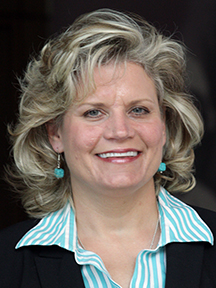The Legal and Ethical Issues Surrounding Surrogate Decision-Making
Wendy Walters, LICSW, HEC-C and Kathryn M. Smolinski, MSW, JD
July 18, 2019
About this Webinar Recording
This webinar will explore the myriad issues faced in surrogate decision making. Led by two veteran social workers, one of whom is a lawyer and the other an ethicist, the focus will be on how state laws define surrogacy and the extent of surrogacy decision-making powers. Boundaries for surrogates, limits on decisions to be made, and effectiveness/ accuracy of understanding patient preferences will also be discussed, and there will be ample time for a robust Q&A.
Learning Objectives
At the end of the presentation, the participant will be able to:
- Have a basic understanding of how state laws view surrogacy.
- Understand the difference between state-appointed and patient-appointed surrogates.
- Recognize some of the boundary issues and ethical issues in surrogate decision-making.
Presenter
Wendy
 Walters, LICSW, HEC-C has been in direct clinical practice for more than 30 years, working with terminally ill patients and their families. She spent her first 13 years working as a direct care medical social worker in hospice care, then the next 4 years at a different hospice company as education coordinator, providing education around a variety of end-of-life issues with both hospice staff and healthcare professionals in the community. For the last ten years, Wendy’s role has been working in the intensive care units with critical care teams as we meet with families to help them make difficult end-of-life decisions.
Walters, LICSW, HEC-C has been in direct clinical practice for more than 30 years, working with terminally ill patients and their families. She spent her first 13 years working as a direct care medical social worker in hospice care, then the next 4 years at a different hospice company as education coordinator, providing education around a variety of end-of-life issues with both hospice staff and healthcare professionals in the community. For the last ten years, Wendy’s role has been working in the intensive care units with critical care teams as we meet with families to help them make difficult end-of-life decisions.Wendy has developed multiple programs over the years, including a housewide bereavement support program in the hospital, Psychosocial & Spiritual Grand Rounds, UAB’s chapter of the national Schwartz Center Rounds, and a monthly Ethics Case Conference series. Wendy has served on the hospital’s ethics committee since 2009, taking over as Vice-Chair of the committee in 2014, and ultimately moving into a fulltime ethics consultant position in December 2016. Wendy recently completed advanced graduate training in clinical ethics through Albany Medical College in upstate New York. Ethics is and continues to be the primary focus of Wendy’s interest.
Presenter
 Kathryn M. Smolinski, MSW, JD, FNAP, FAOSW, is an Assistant Clinical Professor at Wayne State Law School where she directs Legal Advocacy for People with Cancer, a medical-legal partnership clinic which she designed. She is licensed as both a social worker and public interest attorney who assists cancer patients with their legal issues. Her clinic provides free legal education, representation and resources to low-income cancer patients in Detroit, Michigan as part of the law school’s curriculum. This second career complements her first as a clinical oncology social worker for over 20 years including her position as former Executive Director of the Association of Oncology Social Work. Ms. Smolinski has been a senior clinical social worker and Cancer Pain & Fatigue Fellow at Johns Hopkins Hospital in Baltimore, Maryland where she worked for nine years after providing home hospice services in her hometown of Monroe, Michigan. Ms. Smolinski served on the Clinical Ethics Service at Hopkins for eight years assisting patients, families and healthcare professionals in making difficult decisions in the medical setting. She has been a field supervisor in the Smith College School for Social Work End-of-Life Care Certificate Program, faculty member on a five-year National Cancer Institute grant in which she taught leadership skills to oncology social workers around the country and has worked tirelessly in advocating for excellence in end-of-life care. She has published journal articles, book chapters and lectured nationally and internationally on topics such as pain management, palliative care, ethics, legal and psychosocial issues in end-of-life care. She received the American Cancer Society’s Lane W. Adams Award for Excellence in Caregiving and the Leadership in Oncology Social Work from AOSW. She also received a prestigious Equal Justice Works Fellowship to implement the medical-legal partnership and was inducted as a Distinguished Practitioner and Fellow into the Social Work Academy of the National Academies of Practice. Ms. Smolinski has served AOSW as executive director, board secretary, member of the awards and conference committees, SIG leader, abstract mentor, conference presenter for over 27 years, one of the authors of an AOSW original position paper and most recently was inducted as an AOSW Fellow.
Kathryn M. Smolinski, MSW, JD, FNAP, FAOSW, is an Assistant Clinical Professor at Wayne State Law School where she directs Legal Advocacy for People with Cancer, a medical-legal partnership clinic which she designed. She is licensed as both a social worker and public interest attorney who assists cancer patients with their legal issues. Her clinic provides free legal education, representation and resources to low-income cancer patients in Detroit, Michigan as part of the law school’s curriculum. This second career complements her first as a clinical oncology social worker for over 20 years including her position as former Executive Director of the Association of Oncology Social Work. Ms. Smolinski has been a senior clinical social worker and Cancer Pain & Fatigue Fellow at Johns Hopkins Hospital in Baltimore, Maryland where she worked for nine years after providing home hospice services in her hometown of Monroe, Michigan. Ms. Smolinski served on the Clinical Ethics Service at Hopkins for eight years assisting patients, families and healthcare professionals in making difficult decisions in the medical setting. She has been a field supervisor in the Smith College School for Social Work End-of-Life Care Certificate Program, faculty member on a five-year National Cancer Institute grant in which she taught leadership skills to oncology social workers around the country and has worked tirelessly in advocating for excellence in end-of-life care. She has published journal articles, book chapters and lectured nationally and internationally on topics such as pain management, palliative care, ethics, legal and psychosocial issues in end-of-life care. She received the American Cancer Society’s Lane W. Adams Award for Excellence in Caregiving and the Leadership in Oncology Social Work from AOSW. She also received a prestigious Equal Justice Works Fellowship to implement the medical-legal partnership and was inducted as a Distinguished Practitioner and Fellow into the Social Work Academy of the National Academies of Practice. Ms. Smolinski has served AOSW as executive director, board secretary, member of the awards and conference committees, SIG leader, abstract mentor, conference presenter for over 27 years, one of the authors of an AOSW original position paper and most recently was inducted as an AOSW Fellow.Continuing Education Credits
Level - Intermediate
Participants will earn 1.5 CE credits upon successful completion of a quiz and a post-webinar evaluation.
Course Designation
This course has been approved for 1.5 ethics continuing education clock hours.
Outline
12:00 p.m. - 12:25 p.m.: Have a basic understanding of how state laws view surrogacy.
12:26 p.m. - 12:48 p.m.: Understand the difference between state-appointed and patient-appointed surrogates.
12:49 p.m.-1:09 p.m.: Recognize some of the boundary issues and ethical issues in surrogate decision-making.
1:10 p.m. - 1:30 p.m.: Questions and Answers
ASSOCIATION OF SOCIAL WORK BOARDS (ASWB): This organization, Association of Oncology Social Workers, ACE Approval #1351, is approved to offer social work continuing education by the Association of Social Work Boards (ASWB) Approved Continuing Education (ACE) program. Organizations, not individual courses, are approved as ACE providers. State and provincial regulatory boards have the final authority to determine whether an individual course may be accepted for continuing education credit. AOSW maintains responsibility for the program. ACE provider approval period: 11/11/22 - 11/11/25. Social workers completing this course receive 1.5 ethics continuing education credits.
NEW YORK STATE EDUCATION DEPARTMENT’S STATE BOARD FOR SOCIAL WORK:
Association of Oncology Social Work, Inc., SW CPE is recognized by the New York State Education Department’s State Board for Social Work as an approved provider of continuing education for licensed social workers #0320.
GRIEVANCE POLICY: ASOW will comply with all legal and ethical responsibilities to be non-discriminatory in promotional activities, program content and in the treatment of program participants. The monitoring and assessment of compliance with these standards will be responsibility of the Education Director in consultation with the Education Chair and clinical director from committee. We do our best to anticipate problems and, when they do present themselves, will attempt to alleviate complaints as quickly as possible. When a complaint, either verbally or written, is received, the following guidelines are followed with respect to achieving resolution: (1) Complaints relative to a speaker or workshop leader, contents of instructional materials being presented, or an individual educational style being utilized, the individual voicing disapproval is requested to place his/her comments in writing. An AOSW representative will convey these comments to the speaker, assuring the confidentiality of the grieved individual. (2) If the complaint concerns a continuing education activity, its content, level of presentation, or facilities in which the event is being held, the representative in charge will attempt to resolve the matter as expeditiously as possible. If the offered resolution (resolutions offered may include, but not be limited to partial/full refund of registration fees paid; credit toward future event) not satisfactory to the individual filing the complaint, then further action may be taken as follows. (3) The individual is requested to place his/her complaint in writing to the attention of the Education Director, The Association of Oncology Social Work, 17W110 22nd St, Suite 800, Oakbrook Terrace, IL 60181. The complaint is then reviewed by the Education Director in consultation with the Clinical Director and Education Advisor. A written response will be issued within 30-days of receipt of the written complaint.
ADA ACCOMODATIONS: For questions about accessibility or to request accommodations please contact AOSW Education Department at 847-686-2233. Advance notice is necessary to arrange for some accessibility needs.
